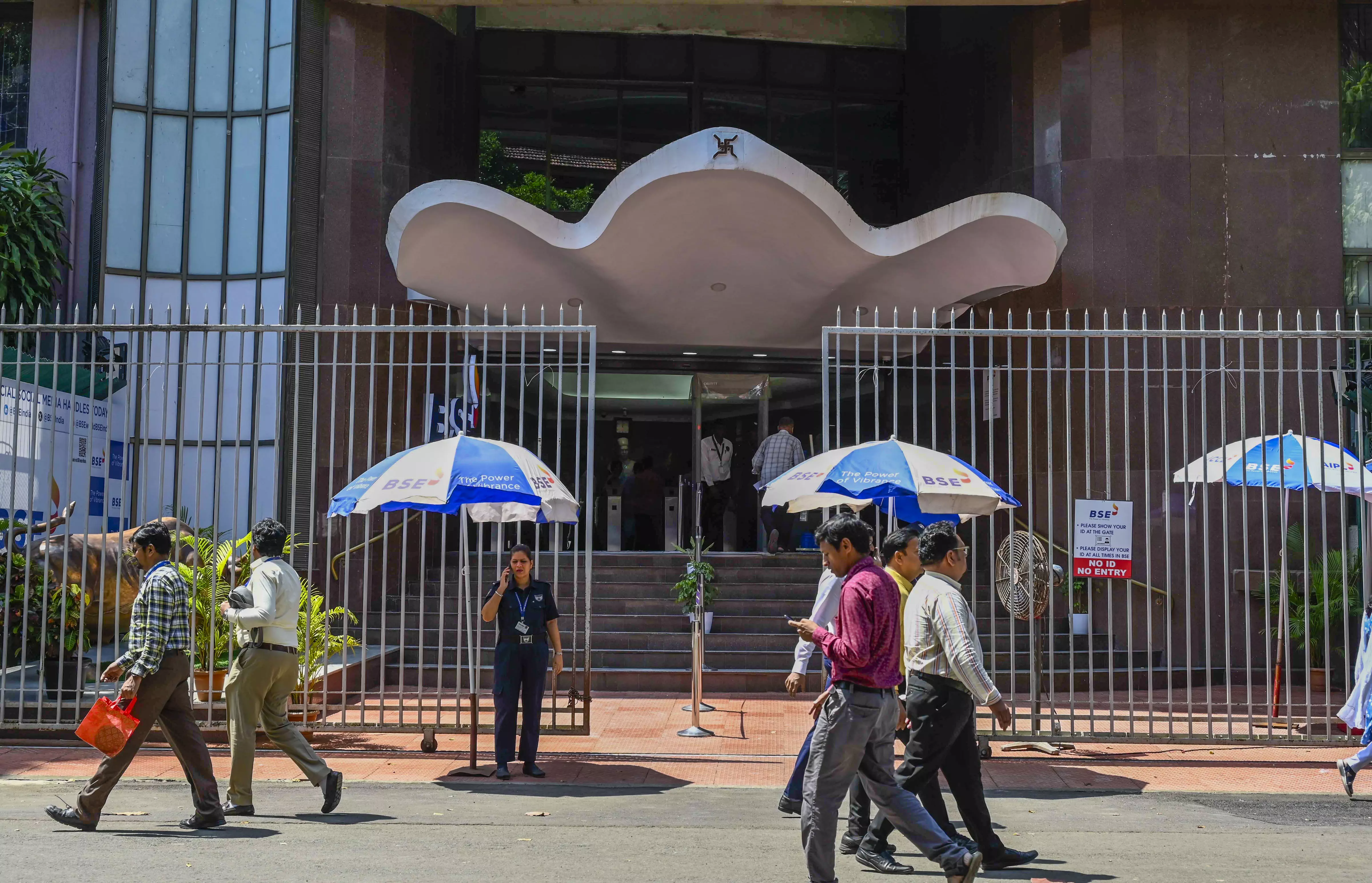
People walk past the Bombay Stock Exchange (BSE) building, in Mumbai, Thursday, October 3. PTI
Geopolitical tensions trigger Rs 10 lakh crore stock market crash; volatility expected tomorrow
The primary trigger for the market’s collapse was the escalating conflict between Iran and Israel. Iranian missile strikes on Israel have heightened fears of a broader regional conflict

Amid growing geopolitical tensions and recent regulatory adjustments, the stock market experienced a severe downturn on Thursday (October 3), resulting in a staggering loss of nearly Rs 10 lakh crore in market capitalisation across BSE-listed companies.
The BSE Sensex plunged by 1,769 points, or approximately 2.1 per cent, to close at 82,497.10. The Nifty 50 also witnessed a substantial decline, falling by 546 points, or around 2.12 per cent, to settle at 25,250.10.
Also read: FPIs inflow hit 9-month high of Rs 57,359 cr in equities in Sep; surpasses Rs 1 lakh cr mark
Iran-Israel conflict
The primary trigger for the market’s collapse was the escalating conflict between Iran and Israel. Iranian missile strikes on Israel have heightened fears of a broader regional conflict, which has rattled investor sentiment globally. Israeli Prime Minister Benjamin Netanyahu’s vow to respond aggressively has further amplified these concerns, raising the spectre of a potential full-scale war.
Adding to the pressure, the resulting geopolitical instability has pushed Brent crude prices closer to $75 per barrel, causing unease in oil-importing nations like India, where the economic impact of rising energy costs is a significant concern.
Also read: Mcap of 8 of top-10 most valued firms surges Rs 1.21 lakh cr; Reliance biggest winner
In addition, regulatory changes by SEBI aimed at curbing speculative trading in futures and options have dampened market liquidity, contributing to the heightened volatility. Analysts suggest these measures could reduce trading volumes by 30 per cent-40 per cent, creating ripples across the derivatives market. Profit-booking activities further exacerbated the sell-off as investors, wary of high valuations in mid-cap and small-cap stocks, sought to lock in gains amidst an uncertain outlook.
Auto, oil, gas among the hardest hit
Foreign Institutional Investors (FIIs) have added to the selling pressure, as many redirected their investments to Chinese markets following recent stimulus announcements.
This shift has resulted in a notable outflow of funds from Indian equities, weakening overall market sentiment. Additionally, with the Reserve Bank of India's (RBI) monetary policy committee meeting scheduled for October 7, uncertainty about potential interest rate changes adds another layer of caution among investors.
Also read: ‘Iran made big mistake’: Israel vows retaliation for attack at ‘chosen place and time’
Vikram Kasat, Head of Advisory at PL Capital, Prabhudas Lilladher, highlighted that key sectors such as auto, oil, and gas were among the hardest hit, with stocks like BPCL and Asian Paints under pressure due to surging crude prices. He advised investors to stay vigilant as the market digests upcoming Q2 earnings reports and the RBI’s policy decisions while closely monitoring global developments and crude oil trends.
Trivesh D, COO of Tradejini, pointed out that although the US and European markets have remained relatively stable, the conflict’s impact is beginning to manifest elsewhere, particularly in the energy sector. “Rising oil prices could pressure India's fiscal deficit, forcing the government to reallocate funds from key infrastructure or public welfare projects to cover the higher costs,” Trivesh told The Federal.
What market analysts say
Meanwhile, traditional safe-haven assets like gold are gaining traction, with the Goldbees ETF climbing around 0.40 per cent and the India VIX (India Volatility Index), a key gauge of market volatility, spiking by 11.4 per cent – a clear indicator of growing uncertainty.
Looking ahead, market analysts believe that while Thursday’s crash is a strong reaction to current events, it might not signal a long-term downtrend. Stability could return if geopolitical tensions ease or corporate earnings surprise on the upside. As a strategic move, some experts advocate for a defensive positioning by shifting investments towards sectors like pharmaceuticals and FMCG, which typically offer resilience during periods of high volatility.
Ultimately, the market’s trajectory will hinge on how these geopolitical and regulatory factors evolve in the coming days.

